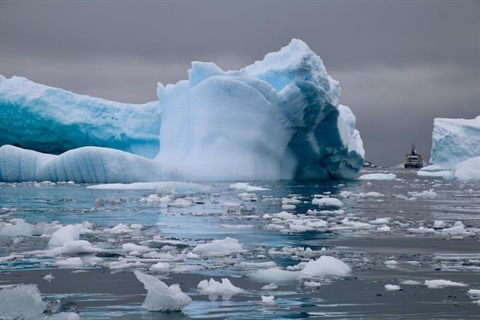Hobart launches Antarctic Season with call for sustained science inves
Published on 15 September 2025

The City of Hobart will host its annual Antarctic Season Reception at Hobart Town Hall on Tuesday, 16 September, celebrating the start of another busy season, but also issuing a warning that the sector faces significant headwinds due to cuts to science funding.
At the reception on Tuesday, Lord Mayor Anna Reynolds will call for cuts to national Antarctic science funding to be rectified to avoid negative impacts on Hobart’s economy and Australia's strategic international leadership role in maintaining peaceful governance on the continent.
Research funding is set to drop sharply from early 2026, leaving little room for science voyages once station resupply is prioritised. Short-term grants currently support over 80% of Australia’s Antarctic research, yet they total less than $20 million annually and offer little to no funding security for scientists.
Cr Reynolds said Hobart’s role in Antarctic and Southern Ocean research was both globally significant and deeply embedded in the city’s identity.
The Antarctic and Southern Ocean sector contributes around $190 million in economic activity to Hobart each year, and the City is calling for sustained investment to ensure this vital work can continue.
This year’s season begins with a landmark voyage to Heard Island and McDonald Islands. More than 100 expeditioners, including scientists, researchers, and support staff, will depart from Hobart to study the islands’ pristine ecosystems and conduct critical terrestrial and marine science.
Quotes to be attributed to Hobart Lord Mayor Anna Reynolds:
“Hobart is home to more than 1000 Antarctic and Southern Ocean researchers, and the work they do here continues to shape international climate policy and deepen our understanding of the planet.
“Our city provides the infrastructure, collaboration, and community to support this world-leading science—but there’s one thing our researchers consistently tell us they need: long-term funding.
“We stand firmly alongside our science and research community in advocating for funding commitments that match the scale of the challenge.
“Major university-led research centres are nearing the end of their funding.
“The Australian Centre for Excellence in Antarctic Science, for example, will run out of support by mid-2026, with no clear path to renew.
“Without long-term investment, Australia risks losing vital research capacity and expertise.
“We urge the federal government to act now to secure the future of Antarctic science.
“This work is not only critical for Tasmania—it’s critical for the world.”